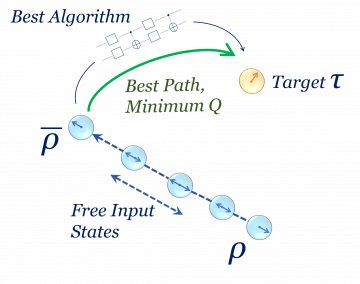Quantum limits to information processing
Quantifying how much information is stored and how fast it propagates in quantum systems is crucial to describe our world, but it is theoretically and experimentally hard. We calculate the fundamental limits to the speed and precision of quantum computers dictated by the laws of physics, answering questions like: How fast quantum computers can be?”, “Are quantum computers really useful when they are plagued by decoherence and dissipation?”, “What is the minimum experimental cost of creating highly entangled many-body systems?”. We quantify the minimum cost of quantum processes in terms of consumption of physical resources, such as energy and time. We show how to achieve these theoretical quantum limits in the laboratory, providing error-aware design principles for noisy quantum computations. These results provide powerful methods to understand and control complex quantum phenomena, accelerating the transition of quantum technologies from textbooks to reality.

D. Girolami and F. Anzà, Quantifying the Difference between Many-Body Quantum States, Phys. Rev. Lett. 126, 170502 (2021)
D. Girolami, An axiomatic measure of one-way quantum information, Phys. Lett. A 384, 126739 (2020)
D. Girolami, How Difficult is it to Prepare a Quantum State?, Phys. Rev. Lett. 122, 010505 (2019), Editors' Suggestion
G. Adesso and D. Girolami, Quantum optics: Wave-particle superposition, Nature Photonics 6, 579-580 (2012)
